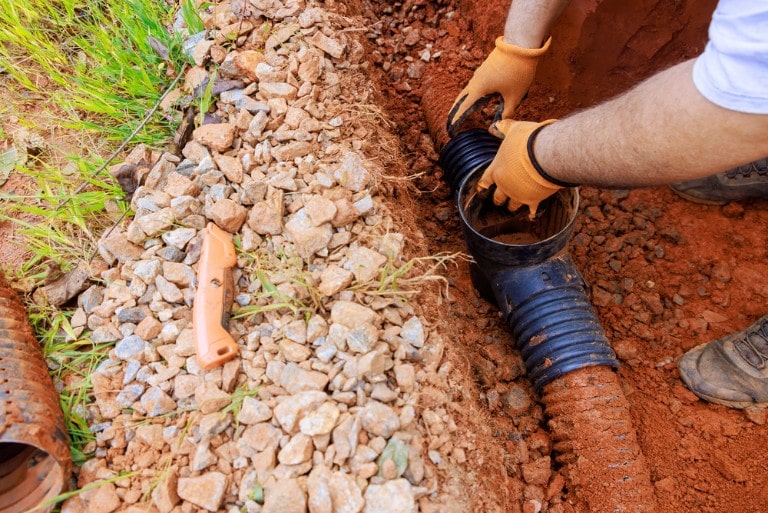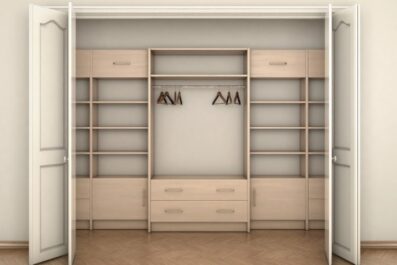The Dangers of Ignoring a Damaged Drainage System

When it comes to protecting your home, the drainage system is often the unsung hero. It quietly directs water away from your foundation, yard, and basement — keeping your home safe and dry. But when that system becomes damaged or starts to fail, it can lead to major problems that cost far more than a simple repair.
If you live in Washington State, where heavy rain and wet winters are common, ignoring drainage issues can be particularly risky. Let’s break down the dangers of neglecting a damaged drainage system and why timely drainage repair can save you from costly headaches.
1. Foundation Damage: The Hidden Threat Beneath Your Home
Water is one of the most powerful forces in nature. When your drainage system isn’t doing its job, water starts pooling near your home’s foundation. Over time, this moisture seeps into cracks, causing the concrete to weaken and expand.
Here’s what can happen:
- Cracked foundation walls – Standing water increases pressure around your home, leading to cracks and shifts.
- Uneven floors – Water can cause soil erosion under your house, making floors tilt or sag.
- Basement leaks – If you notice dampness or water stains in your basement, poor drainage could be the cause.
Once foundation issues start, repairs become expensive and disruptive. That’s why catching drainage problems early is so important.
2. Mold and Mildew Growth
Moisture buildup is the perfect environment for mold and mildew. You might think a small puddle in your crawl space or basement isn’t a big deal — but it’s a silent health hazard.
Mold spores spread quickly through your home’s air system and can cause:
- Allergies and respiratory problems
- Musty odors
- Damage to walls, floors, and insulation
In Washington’s humid climate, mold can appear in as little as 24–48 hours after water exposure. A functioning drainage system keeps these problems at bay by keeping your home dry.
3. Landscape and Yard Erosion
Your yard isn’t just a place for plants and play — it’s part of your home’s drainage system. When gutters overflow or drain pipes leak, water can wash away soil, damage landscaping, and create unsightly gullies.
Common signs of erosion include:
- Bare soil spots or exposed roots
- Puddles forming after every rainfall
- Fence posts or patios sinking unevenly
Fixing your drainage system helps preserve the value and beauty of your outdoor space — and prevents water from sneaking back toward your home.
4. Pest Infestations
Standing water attracts more than just mosquitoes. Wet soil and damp areas are breeding grounds for termites, carpenter ants, and rodents. These pests are drawn to moisture, and once they find an entry point, they can invade your home.
A properly working drainage system keeps the ground dry and eliminates pest-friendly environments. It’s a simple fix that can prevent infestations and the structural damage they bring.
5. Damage to Driveways and Walkways
Poor drainage doesn’t only affect your foundation — it can also wreak havoc on your hard surfaces. Concrete and asphalt can crack when water gets underneath, freezes, and expands.
Signs your driveway or sidewalk might be suffering from drainage issues:
- Cracks or lifting pavement
- Pooling water after rain
- Mud or sediment washing over the surface
Repairing the drainage around these areas not only improves safety but also extends the life of your outdoor surfaces.
6. Rising Repair Costs Over Time
Like most home issues, small drainage problems tend to grow — and fast. A clogged pipe or minor leak might seem harmless now, but over months or years, it can lead to major structural damage.
The longer you wait, the higher the costs:
- Foundation repairs can cost thousands.
- Mold remediation may require replacing drywall and flooring.
- Yard regrading and landscaping can take weeks to fix.
By addressing problems early with professional drainage repair in Washington, you’ll avoid these expensive surprises.
7. Decreased Property Value
Homebuyers are wary of water problems — and for good reason. Evidence of poor drainage, such as cracks, stains, or damp smells, can significantly reduce your home’s resale value.
If you ever plan to sell, having a well-maintained drainage system will make your home more attractive and easier to inspect.
8. Protecting Your Home with Professional Drainage Repair
While minor clogs or gutter cleaning can be DIY projects, most drainage issues require professional help. A certified drainage repair contractor can inspect your property, locate the source of the problem, and design a lasting solution.
They might recommend:
- French drain installation – To redirect groundwater away from your foundation.
- Downspout extensions – To carry roof water further from your home.
- Sump pump installation – To remove excess water in basements or crawl spaces.
- Grading adjustments – To reshape your yard for proper runoff.
Hiring a local expert ensures your system is designed for Washington’s wet conditions and soil types.
9. How to Spot Drainage Issues Early
Don’t wait for major signs of damage. Here are a few early warning signs to watch for:
- Water pooling around your foundation after rain
- Basement dampness or musty odors
- Soggy or uneven spots in your yard
- Cracks in walls or driveways
- Overflowing gutters or downspouts
If you notice any of these, it’s best to call a local drainage repair company before the problem escalates.
Final Thoughts
Ignoring a damaged drainage system might not seem urgent today, but over time, it can turn into a homeowner’s nightmare. From mold growth and foundation cracks to pest infestations and yard erosion, the damage can be extensive and costly.
For homeowners in Washington State, regular maintenance and timely drainage repair are essential for keeping your home safe, dry, and strong year-round.
So, the next time it rains take a look around your yard and foundation. A few puddles might seem harmless now, but they could be warning you about something much bigger.




